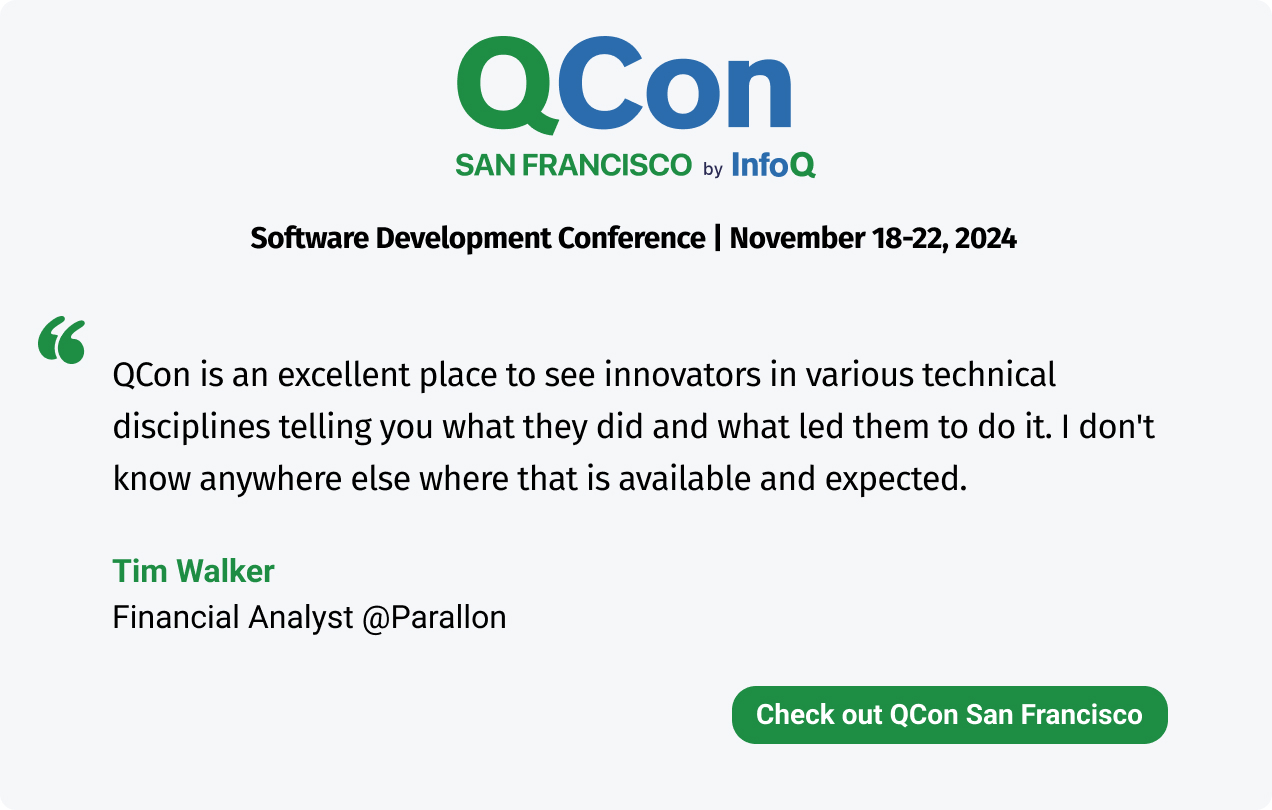InfoQ Homepage Presentations An Introduction to Data Grids
An Introduction to Data Grids
Summary
Cameron Purdy explains how a data grid functions by using a partition topology for data access, update, recovery and local storage, accessing data using read/write-through and write behind, and invoking operations through Observable, QueryMap and InvocableMap interfaces. He also offers some examples of data grids solving complex problems and introduces Coherence, Oracle’s data grid solution.
Bio
Cameron Purdy was the founder and president of Tangosol, Inc, a market leader in delivering in-memory caching and data management solutions to companies building and running mission critical enterprise J2EE applications. He currently is VP of Development at Oracle.
About the conference
Jfokus is the largest annual conference for everyone who works with Java in Sweden. At Jfokus you will have an unique opportunity to keep yourself updated with the latest development of the Java platform through numerous interesting sessions. Jfokus gather rock-star speakers, both from Sweden and internationally. The focus is system development with Java and surrounding techniques like dynamic languages and agile methodologies. Jfokus is the best way for you to get the latest trends and buzz about Java from people who live and breathe technology on a daily basis.

